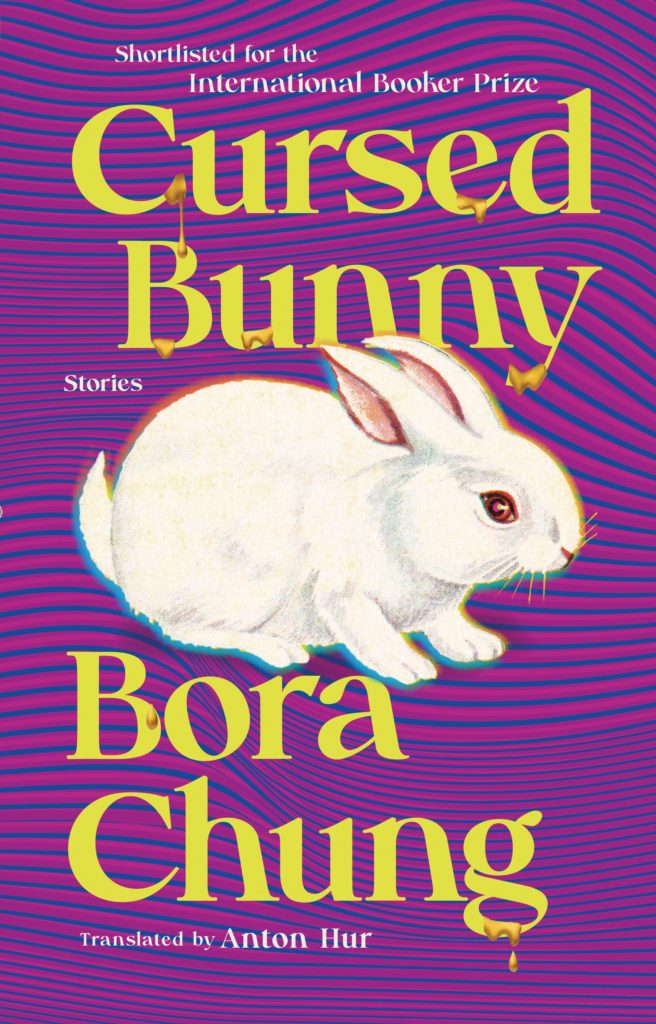
Cursed Bunny
Bora Chung (Translated by Anton Hur), 256 pgs, Algonquin Books, algonquin.com, $17.99 USD
Fairy tales are just for kids, right? Stories about princesses and peas, magic frogs and evil witches can seem like something from in the Middle Ages. But they can also speak to us in the present and can appeal to adults, too. From Kafka’s short stories to contemporary authors like Ludmilla Petrushevskaya and Haruki Murakami, the genre is far from stale or dead.
A great example of this is Bora Chung’s debut collection, Cursed Bunny. In a series of stories mostly set in modern-day South Korea, Chung writes of heads coming up out of toilets, robots that fall in love and unexpected pregnancies. Her stories are spooky and unsettling, and thankfully they never descend into gore or jump scares.
The stories that really stand out are set in more fantastical worlds. “Ruler of Sands and Winds” is set in a steam-punk-ish future with floating cities, seas of sand, and arranged marriages. It might be a little indebted to Dune, but it also stands on its own. Meanwhile, “Snare” goes back in time to a more agrarian society. A man finds a fox who bleeds gold and takes it home to continue bleeding it, but the fox dies. Soon after the man has twins, one of whom eats blood and then bleeds gold himself. It’s disturbing, but also reads as a deft commentary on the lengths people go to to satisfy their greed.
Indeed, throughout Chung’s book one sees the echoes of late capitalism and the ways modern society alienates and isolates us. Her stories read like parables, where decisions made for business’s sake have long and supernatural repercussions. There’s a reason the storefront stays vacant or the familiar voice on the cell phone isn’t friendly.
Earlier, I mentioned Murakami. Chung resembles him in some ways, at least in her mix of magical realism and social commentary. And like him, her writing shows strong Western influences, particularly from Russians like Audrey Platonov, Tatyana Tolstaya, and above all Petrushevskaya, whose “scary fairy tales” are a direct predecessor of Chung’s. And Anton Hur’s translation is nice — it never feels jargon-heavy and reads smoothly.
Originally released by UK-based press Honford Star in 2021, Cursed Bunny cracked the 2022 International Man Booker Prize shortlist. It finally got a domestic release a few months ago, and it’s sure to linger long after you’ve closed its pages. Just maybe don’t read it before bed.
